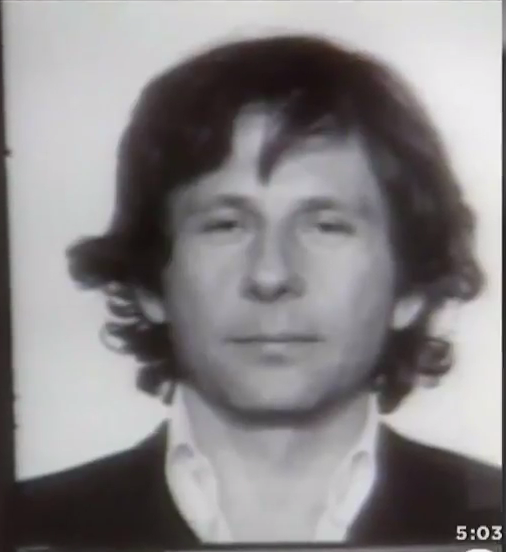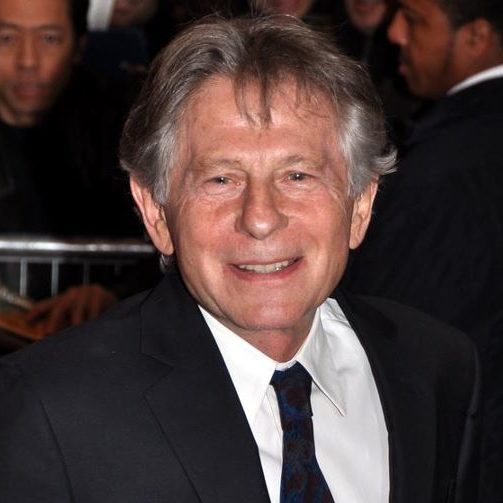Content warning: mentions of rape, sexual assault and child abuse.
Saturday night, less than two years since Hollywood was rocked by the Weinstein scandal and #MeToo movement, child rapist and fugitive filmmaker Roman Polanski was awarded the prestigious Grand Jury Prize at the Venice film festival for his film J’Accuse (An Officer and a Spy).
Polanski did not attend the festival nor the ceremony to collect his award, fearing extradition to the United States, where he is still wanted by the criminal justice system. He fled the States in 1978 while awaiting sentencing in his sexual abuse case, in which he pleaded guilty to the statutory rape of a 13-year-old girl, Samantha Gailey (now Geimer). He even wrote about it in detail in his autobiography, only six years after fleeing to France.

In March 1977, 43-year-old Polanski took a young girl whom he knew was only 13 to actor Jack Nicholson’s house (absent at the time) for a photo shoot. He gave her champagne and, according to her, Quaaludes – a sedative and hypnotic medication – performed oral, vaginal, and anal sex on her. These events are undisputed.
Soon after, a grand jury charged Polanski with five charges: rape by use of drugs; perversion; sodomy; lewd and lascivious act upon a child under fourteen; and furnishing a controlled substance to a minor. According to Gailey’s grand jury testimony, she repeatedly asked him to take her home, told him “No” and asked him to stop, again and again.
Expectedly, Polanski denied that the act was not consensual, stating in his autobiography that “she was not unresponsive”. Whether the rape was violent, as the victim has described it on numerous occasions, or not, what happened was rape. Gailey was a child, she was cut off inside a house she did not know, she was given substances that made it easier for a man thirty years her elder to manipulate her, and coerce this child into sex.
Gailey became afraid of the media attention the case was gathering because of Polanski’s fame, and wished to withdraw herself from the case. Hoping to protect Gailey from a trial, her attorney Lawrence Silver arranged for a plea-bargain, which allowed Polanski to plead guilty to the lowest count against him, that of unlawful sexual intercourse with a minor.
A year or so later, Polanski was interviewed by Martin Amis and took the opportunity to declare: “Judges want to fuck young girls. Juries want to fuck young girls – everyone wants to fuck young girls!”.
Despite this, one can hardly say that Roman Polanski’s career suffered. In fact, for decades after his conviction, he was vehemently defended by French and Polish authorities, the Hollywood establishment, fellow filmmakers and actors. As recently as 2009, when Polanski was arrested in Switzerland and subsequently released, a petition to have him freed gathered over a hundred signatures from the likes of David Lynch, Tilda Swinton, Woody Allen, Harvey Weinstein, Martin Scorsese, and Pedro Almodóvar.

This year sees the release of his first film in the #MeToo era. Polanski takes the opportunity to make a film about a wrongly persecuted French Jewish army officer, a victim of antisemitism and of a miscarriage of justice. The parallels are obscenely drawn, and he states that “I am familiar with many of the workings of the apparatus of persecution shown in the film, and that has clearly inspired me.” He is rewarded for his work by one of the world’s most esteemed film competitions.
For decades since the ‘60s, Polanski seems to have a free pass with Hollywood. As mentioned above, many celebrities came to his defence 10 years ago, many actors and actresses have expressed their joy working with him (Kate Winslet in 2017 stated that “having thought it all through, you put it to one side and just work with the person. Woody Allen is an incredible director. So is Roman Polanski. I had an extraordinary working experience”), and he has continued to have an illustrious career.
The director’s past has often been used as a defence for his crime, or for why he deserves to keep his status in the film industry. His contribution to cinema is one of the most prominent. It is as though one act of rape is an acceptable payoff for great films. Secondly, his fervent supporters also stress the tragedies in his life, from his pregnant mother being killed in the Holocaust to his wife, Sharon Tate, and unborn child being murdered by the Manson family. While these events should evoke great sympathy, presenting deadly violence against these women as extenuating circumstances for violence against a child is repulsive.
One might have thought that, in the new age of Hollywood since the Weinstein scandal, the tide may finally have turned on Roman Polanski. As it has now become clear, this is not the case. When the Harvey Weinstein scandal exploded, many in the industry were vocal in their shock and horror, expressing that had they known of what was happening behind closed doors, they would never have worked with the producer. Yet many of those same people have, for years, been working with or applauding the work of a known, convicted child rapist.
For the last two years, a debate regarding art and its relationship to its creator has been on the frontlines of public discourse. Can one separate a film from the actions of its maker? Is a film immune from its director or stars’ actions? Whatever one’s stance on the matter, the contrast between the fallout of Weinstein’s crimes and that of Polanski’s (and others) highlights the industry’s hypocrisy.
Happy to virtue-signal and stand with victims when the socio-political climate calls for it, the film establishment has proven that as soon as the spotlight is off, it will always keep its established figures on their pedestals. In the aftermath of this award, there was silence – a noticeable lack of outrage which ought to ring alarm bells. Are we already so tired of pushing for progress that we merely shrug when one of the most influential film festivals celebrates a convicted child rapist?
